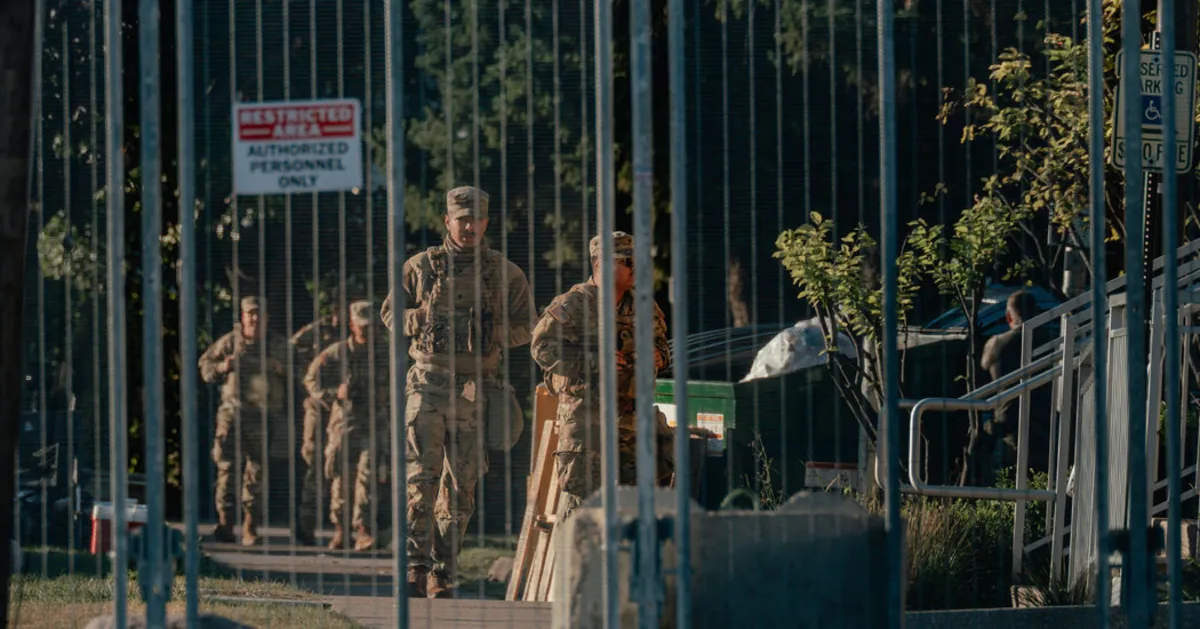
The ongoing legal battles surrounding the Trump administration's deployment of military forces for immigration enforcement have escalated into high-stakes legal hearings in both Chicago and on the West Coast. During these hearings, lawyers representing the Trump administration argued that protests against immigration enforcement had escalated to the point of violence, justifying the President's actions. They contended that these actions could not be impeded by the courts. In the case involving Oregon, two judges appointed by Trump on an appeals court panel expressed skepticism towards the state's claims that protests outside a federal immigration facility in Portland remained predominantly peaceful, highlighting confrontations that occurred back in June.
In Chicago, a federal judge raised concerns about the potential scope of the military's mission, questioning whether it would be limited to protecting federal agents and facilities or if it might extend beyond that, as local officials fear. These cases carry significant implications for the use of military power on U.S. soil. The timeline for rulings from either the Oregon appellate panel or the federal judge in Chicago remains uncertain.
Oklahoma's Republican Governor Kevin Stitt, who also chairs the National Governors Association, has publicly criticized the deployment of Texas National Guard troops to Illinois. He labeled this action a violation of his principles regarding federalism and "states' rights," marking a notable instance where a Republican governor has questioned the interstate deployment of National Guard troops against another governor's wishes. Stitt emphasized that such actions could set a dangerous precedent for future administrations.
According to reports, approximately 300 Illinois National Guard troops and 200 Texas troops have been activated for federal duty in Illinois. A spokesperson from U.S. Northern Command confirmed that some Texas troops had commenced "actively protecting federal personnel and property," although specific locations were not disclosed. Additionally, the Tennessee National Guard is set to begin patrolling Memphis. The number of troops deployed in Memphis remains unclear, but the city is under a Republican administration that supports the President's initiatives to combat crime in Democratic-led cities.
Judge Nelson, during the hearing, challenged the assertion made by Oregon State's lawyer that the protests had calmed down. He suggested that the courts should afford the President a broad interpretation of events leading up to his decision to deploy military forces. Citing historical precedents, he remarked that even President Lincoln might have faced challenges in mobilizing forces during tumultuous times, such as after the attack on Fort Sumter in 1861.
The appeals panel's deference to the Trump administration's narrative starkly contrasted with a recent ruling from Judge Karin J. Immergut of the Federal District Court for the District of Oregon. Judge Immergut characterized the President's perspective on the situation in Portland as "untethered to the facts," noting that while there had been some concerning incidents, they were manageable by local law enforcement. The appeals panel, however, seemed inclined to accept that the current state of protests might justify the deployment of the National Guard.
In Memphis, local authorities have expressed concerns about the potential repercussions of deploying National Guard troops in a city with a majority-Black population, particularly given the police department's history of aggressive tactics. Although officials claim crime rates have decreased, Memphis still grapples with some of the highest crime rates in the nation. Mayor Paul Young, a Democrat, has voiced his opposition to the National Guard's presence, asserting that he desires a say in the deployment of federal forces.
Governor Stitt's remarks reflect broader political tensions within the National Governors Association, where leaders like Governors Pritzker and Newsom have threatened to withdraw if the association does not oppose the deployment of Texas troops. Stitt clarified that his comments were his own and did not represent the association's stance. He emphasized that the organization is intended for educational purposes and should not engage in political disputes.
As discussions continue, Stitt expressed hope that more Americans would recognize that "elections have consequences" and encouraged giving President Trump the benefit of the doubt regarding his actions to protect cities facing unrest. He anticipates that other Republican governors may also voice their concerns about the implications of such military deployments in the future.
In conclusion, the legal ramifications of military deployments across U.S. cities are still unfolding, with significant implications for federalism, state rights, and the approach to law enforcement in areas experiencing unrest.